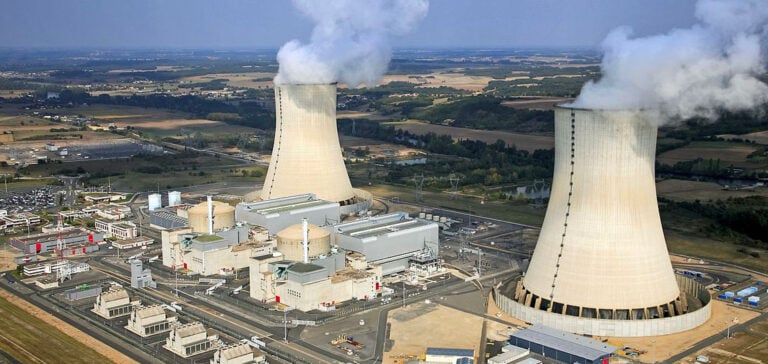The Renewal of Nuclear Energy in Paris is the subject of an international conference on the sector. Ministers and industrialists from twenty countries are discussing its relaunch. They are also seeking to encourage its financing by international institutions. Before the conference, Greenpeace activists demonstrated. They unfurled banners criticizing France’s nuclear strategy. The police evacuated them without incident.
Conference objectives
The meeting aims to draw up plans to revive the global nuclear industry. According to French Minister Agnès Pannier-Runacher, the aim is to contribute to carbon neutrality and strengthen energy security. A political alliance is envisaged to achieve these objectives.
The planned alliance goes beyond an industrial partnership. It seeks to reduce the dependence of certain countries on Russia. A ministerial declaration is expected to underline the importance of nuclear power in the energy transition.
France is playing a leading role in the revival of nuclear power in Europe. It aims to influence negotiations on the reform of the EU electricity market. Industrial cooperation is also envisaged.
Tripling of nuclear capacity
Global nuclear capacity is set to triple by 2050. This is necessary if we are to achieve our carbon neutrality objectives. The Nuclear Energy Agency recommends a combination of existing and new reactors.
“We’re seeing a return to nuclear power worldwide,” says Fatih Birol of the IEA. He cites several countries investing in nuclear power. However, revitalizing this sector involves a number of challenges, particularly in terms of financing and rapid investment.
Progress and Future Developments
By 2022, 7.9 GW of nuclear capacity will have been commissioned. China and Russia are at the forefront of this development. The IEA predicts that the nuclear revival will “continue”, provided that projects meet deadlines and costs.
This renewed interest in nuclear power highlights its key role in the global energy transition. For the energy and finance markets, this suggests investment opportunities and challenges related to project implementation and the management of environmental and safety concerns. The future of the nuclear sector will depend on the ability of the various players to overcome these challenges and reconcile diverging interests.






















